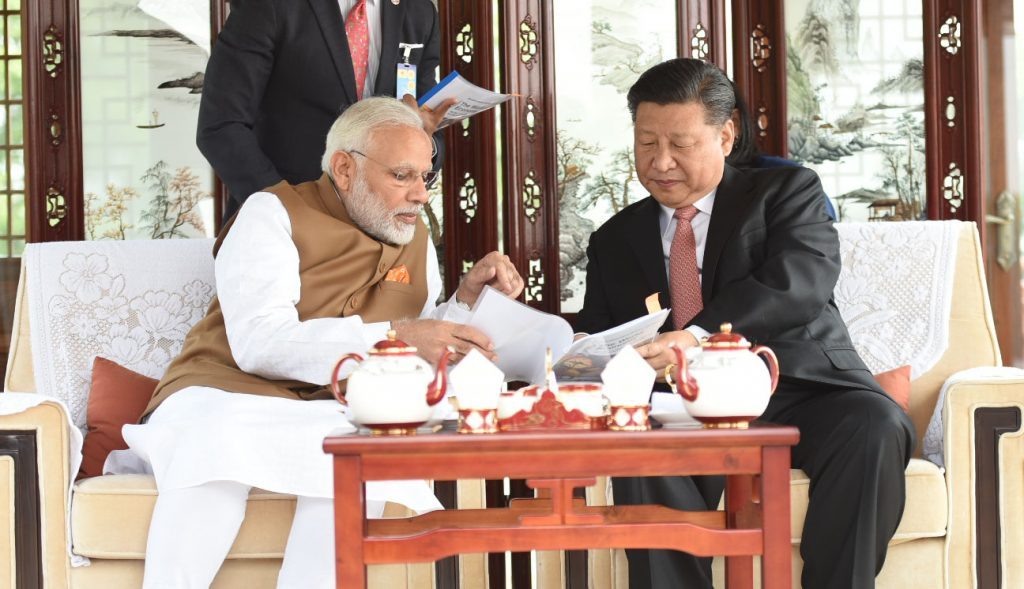
By Jayadeva Ranade (22 April 2020) – The grave mishandling of the coronavirus pandemic (Covid-19) by the Chinese government and tragic loss of lives have angered citizens. This was evident from the riots that took place at the border checkpost between Hubei and Jiangxi provinces on March 28. The pandemic has also severely affected the nation’s economy, virtually stopping its growth for the last three months and rendering millions jobless. The services sector is losing an estimated $144 billion each week. Unemployment has risen to over 6%. Financial services have assessed a 30% contraction of China’s economy. Economic recovery has been slow, prompting Chinese businessmen such as Jack Ma, founder of the Alibaba Group, and Liu Chuanzhi, the founder of Lenovo, to sign a nine-point letter addressed to President Xi Jinping reviving demands for comprehensive reforms.
Economic losses have hurt almost all sectors. Bloomberg reported a contraction of 9.9% in incomes of central and local governments in the first two months of 2020, calling it the “deepest fall since February 2009”. The report added: “Tax revenue declined more than 11%, with drops in value-added taxes, corporate income taxes and car purchase taxes”. The surge in outlays on health care and social security, however, “kept the decline to 2.9% from a year ago”. Twenty-two provinces, regions and municipalities had already cut their 2020 growth targets, with 11 regions officially admitting to missing their 2019 GDP targets. A joint survey by Peking University’s Guanghua School of Management and China’s largest hiring platform, Zhaopin, revealed that job openings in the country for the first two months of 2020 dropped more than 30%. The hardest hit are the media, entertainment, sports and services sectors, followed by information technology, telecom, and Internet sectors, which saw recruitments fall to up to 40%. Smaller firms suffered more.
China’s leaders have been straining to revive the economy also because they, particularly President Xi, consider it domestically and geopolitically important to achieve the “China Dream” by 2021 and keep the country on track to become “a major world power with pioneering global influence” by 2049. The latter implies acquiring a capability to rival the United States (US) and influence and create world organisations. Failure to achieve these goals would impact adversely on their legitimacy. However, despite their efforts, economic recovery is slow.read more
Commencing February 3, Xi has exhorted local officials to “prevent the economy from slipping out of a reasonable range”, emphasised the importance of China’s role in global trade and the need “to stabilise China’s share in the international market”. He also stressed the need to promote international cooperation and maximise the country’s role as a “responsible great power”. Meanwhile, Chinese Premier Li Keqiang tried to stabilise foreign investment and attract investments of over $1 billion in the manufacturing and high-tech sectors.
Other steps to revive the economic activity include providing medium-term funding to banks and cutting the interest rate. More than 300 Chinese companies are seeking bank loans, totalling at least $8.2 billion. To encourage the service industry’s recovery, at least 10 governments are giving coupons directly to the people. The ministry of industry and information technology, however, said that, by March 24, only 71.7% of small and medium enterprises had resumed operations.
China is keeping strategic interests in mind. The companies have raised the production of medical equipment and supplies to take advantage of global demand. Benefitting from the drop in oil prices, China purchased almost 1.5 million tonnes of commercial crude raising its strategic storage of oil to 29.45 million tonnes.
But China’s growth will depend on the global economy and other countries. The US-China rivalry is poised to escalate. As the US, Europe and other countries grapple with the pandemic, trade will be limited and low on their list of priorities. Countries will introspect and re-examine current trade policies, as must India, with priority on eliminating dependence on a single-source of supply, especially in vital sectors. With the possibility of biological warfare now a reality, a serious complication for China will be its image, suspicions of its role and whether it shared pertinent data about the pandemic with the world in time. China blocking a discussion on the pandemic at the United Nations Security Council only heightened suspicions.
Jayadeva Ranade is former additional secretary, Cabinet Secretariat, Government of India, and president, Centre for China Analysis and Strategy.
This article first appeared in Hindustan Times.

